Cabbages
This post is about cabbages. There are pictures of non-cabbage things at the end.
Cutting cabbages, as Aram mentioned in our
previous post, is not nearly as easy as it sounds. These cabbages are giants, easily weighing 20 pounds, and are not
willing to let go of their stalks without a fight. To cut a cabbage, one employs a
stab-and-twist method, first cutting into the base of the cabbage, then twisting the knife while leveraging one's body weight to release the head from its base. When done correctly, each cabbage should take about 15 seconds from start to finish.
One morning, as I stood in the hallway putting on my boots, I overheard a conversation Digni was having with Aram which I know I was not intended to hear. Digni asked Aram if I would be joining him in helping the cabbage workers that afternoon. Aram replied that I would, and Digni then said plainly that he didn't think I could do it and that Aram had better come on his own. He said, "It is very hard work, very hard. I do not mean anything bad by this, but I have never seen a female person do it correctly."
In the hallway, I was fuming. The feminist in me was very angry. I felt that I had been personally attacked, though this was clearly not the case. Digni had not said, "Jenna can't do it because she's a woman and women are weak." The Dutch are known for their straightforwardness; children are raised to be assertive and to say what they think. Digni was merely repeating an observation; as the owner of this farm and having observed many men and women at work cutting the cabbages, his experience was that women often did not do it correctly. This, however, was not what my brain heard. What I heard was, "You're a girl, and that means you're not strong enough, and so you will not be given a chance to try."
That afternoon I weeded instead of cutting cabbages. Afterwards, Aram told me the work was difficult and he had struggled to get the technique, but he thought I could do it. I talked to him about overhearing Digni and how it made me feel: I was angry that I had to prove myself as a woman, I was angry that I was being challenged to prove that I could succeed at a task that women apparently fail at. Aram commiserated, and for his part explained that he, as the only newcomer of the cabbage cutters, had felt similarly self conscious about his performance. He said he felt like he had to prove his manliness by being strong and keeping up with the other male cabbage cutters. I understood where he was coming from, and even the pressure that he must have felt was put upon him. Because he was a man, it was assumed that he must be able to cut the cabbages, but because I was a woman, I must not be able to. I guess we both felt uncomfortable, but I felt like I had a right to be angrier, since I had been denied the presumption of capability. That really, really bothered me, and I went to bed still pissed about it.
One morning, as I stood in the hallway putting on my boots, I overheard a conversation Digni was having with Aram which I know I was not intended to hear. Digni asked Aram if I would be joining him in helping the cabbage workers that afternoon. Aram replied that I would, and Digni then said plainly that he didn't think I could do it and that Aram had better come on his own. He said, "It is very hard work, very hard. I do not mean anything bad by this, but I have never seen a female person do it correctly."
In the hallway, I was fuming. The feminist in me was very angry. I felt that I had been personally attacked, though this was clearly not the case. Digni had not said, "Jenna can't do it because she's a woman and women are weak." The Dutch are known for their straightforwardness; children are raised to be assertive and to say what they think. Digni was merely repeating an observation; as the owner of this farm and having observed many men and women at work cutting the cabbages, his experience was that women often did not do it correctly. This, however, was not what my brain heard. What I heard was, "You're a girl, and that means you're not strong enough, and so you will not be given a chance to try."
That afternoon I weeded instead of cutting cabbages. Afterwards, Aram told me the work was difficult and he had struggled to get the technique, but he thought I could do it. I talked to him about overhearing Digni and how it made me feel: I was angry that I had to prove myself as a woman, I was angry that I was being challenged to prove that I could succeed at a task that women apparently fail at. Aram commiserated, and for his part explained that he, as the only newcomer of the cabbage cutters, had felt similarly self conscious about his performance. He said he felt like he had to prove his manliness by being strong and keeping up with the other male cabbage cutters. I understood where he was coming from, and even the pressure that he must have felt was put upon him. Because he was a man, it was assumed that he must be able to cut the cabbages, but because I was a woman, I must not be able to. I guess we both felt uncomfortable, but I felt like I had a right to be angrier, since I had been denied the presumption of capability. That really, really bothered me, and I went to bed still pissed about it.
In any case, the next morning they needed
more hands to help with the cabbages and Digni did send me out to help
with everyone else. As we were riding out to the field, I felt a lot of pressure. This was my "chance" to prove that I could do this, despite my apparent handicap of having a vagina.
Ostensibly
the most frustrating thing about the cabbage
cutting was that my struggle with it had very little to do with lack of
strength. The difficulty that I was having was with the knifing
technique, not the strength required to push the cabbage off. However, I
felt it must have appeared to everyone else
that I lacked the strength to push the cabbages off. I desperately
wanted to stand up and yell to
everyone "I'm strong enough! I just can't get this goddamn knife to do
what I want it to do!"
A few minutes into the work, my emotional reaction to the
situation began to get out of control. I was covered in mud, on my knees in
wet cabbage, desperately trying to get the hang of this stab-and-twist
thing. Everyone had been given their own row, so it was easy to see how
fast each person was moving and it was clear that I was the slowest.
With each cabbage I struggled to release from its slimy hold, I
grew more and more angry, hearing Digni's challenge in my head.
I had muddled feelings about this. On one hand, I knew logically that what I had overheard was not intended as an insult or as a challenge of my personal abilities. On the other hand, knowing this did not stop me from feeling hurt. I felt that every man on that field was watching me and thinking "God, why did Digni send a woman out here, she's so slow, she can't even cut it right because she's too weak."
I wish I was exaggerating these thoughts but there they were. Mostly I was swinging this mini machete around feeling resentful. I resented Digni for challenging me (although he had done no such thing), I resented the men on the field for perpetuating that challenge (even though they were doing no such thing), and most of all I resented myself for not being able to magically whisk those goddamn cabbages off of their stalks with my pinkie finger of steel and blow everyone else cutting cabbages out of the water. I felt like I had a responsibility to women to be the strongest, most amazing cabbage cutter the world had ever seen, and I was utterly failing at it. This made me the angriest of all. I was disappointed in myself for proving Digni right.
I had muddled feelings about this. On one hand, I knew logically that what I had overheard was not intended as an insult or as a challenge of my personal abilities. On the other hand, knowing this did not stop me from feeling hurt. I felt that every man on that field was watching me and thinking "God, why did Digni send a woman out here, she's so slow, she can't even cut it right because she's too weak."
I wish I was exaggerating these thoughts but there they were. Mostly I was swinging this mini machete around feeling resentful. I resented Digni for challenging me (although he had done no such thing), I resented the men on the field for perpetuating that challenge (even though they were doing no such thing), and most of all I resented myself for not being able to magically whisk those goddamn cabbages off of their stalks with my pinkie finger of steel and blow everyone else cutting cabbages out of the water. I felt like I had a responsibility to women to be the strongest, most amazing cabbage cutter the world had ever seen, and I was utterly failing at it. This made me the angriest of all. I was disappointed in myself for proving Digni right.
Even though Digni did not intend to challenge me, what he had done was bring gender into a situation where I felt it didn't belong. If I hadn't
overheard him, I never would have thought about being the only girl on
that field, and I never would have put my performance cutting cabbages
into the context of proving the general strength and abilities of women in general.
Anyway, while all this was happening I finished my cabbage
row not really that far behind everyone else, but only because someone
came and started cutting my row from the other side, which caused me to
probably mutter like a nutcase out of resentment for his help. Then came
the time when we had to lift all the cabbages and throw them into the
bins on the tractor. Aram has explained this, but please imagine doing
squats with a 20 to 25 pound weighted basketball, then lifting them up
over your head and throwing them into a moving bin. Now bend down and do
it again forty times or so, and make sure not to go too slow or you'll
fall behind the moving tractor.
After loading the first round of cabbages we had a coffee break where I sourly contemplated my failure as a strong woman to defend the honor of strong women everywhere by blasting the cabbages away with one glance from my Kryptonite gaze. Afterwards, we went back out for round two.
Here I tried a different technique with the knife and surprisingly I was moving faster. The cabbages started coming off like they were supposed to. By the end of the third round I was keeping pace with everyone else. I felt awesome, but I still resented feeling as though I had to prove something that nobody else had to prove.
I talked with Aram a long while about this afterwards, as we rode our loaner bikes to a nearby town and beach. I was having trouble figuring out where my resentment had come from, and if anything wrong had even been said in the first place.
The thing is, I have always had uncomfortable feelings about what kind of girl I should be. I have always felt that there are stereotypes that I don't want associated with me. For years when I was a teenager and even for the first year or two of college, I felt very strongly that I must be cool, relaxed, not admit to liking "girly" things, that I should be strong and sarcastic.
In recent years I have finally come to realize how silly and even damaging my feelings about being a girl are. There is a tendency among young women to disavow and denegrate certain characteristics that are considered stereotypical of women. They insist that "girly" characteristics are something to be ashamed of. This is damaging mainly because it creates a divide among women: girly-girls and not-girly-girls... as in, more like men. This plays into a male dominant system, because of course the underlying message being communicated, whether one is conscious of it or not, is that being a girl is somehow undesirable, while being more male is desireable. The things that we have come to associate with women are also things we have come to look down on as frivolous and weak.
After loading the first round of cabbages we had a coffee break where I sourly contemplated my failure as a strong woman to defend the honor of strong women everywhere by blasting the cabbages away with one glance from my Kryptonite gaze. Afterwards, we went back out for round two.
Here I tried a different technique with the knife and surprisingly I was moving faster. The cabbages started coming off like they were supposed to. By the end of the third round I was keeping pace with everyone else. I felt awesome, but I still resented feeling as though I had to prove something that nobody else had to prove.
I talked with Aram a long while about this afterwards, as we rode our loaner bikes to a nearby town and beach. I was having trouble figuring out where my resentment had come from, and if anything wrong had even been said in the first place.
The thing is, I have always had uncomfortable feelings about what kind of girl I should be. I have always felt that there are stereotypes that I don't want associated with me. For years when I was a teenager and even for the first year or two of college, I felt very strongly that I must be cool, relaxed, not admit to liking "girly" things, that I should be strong and sarcastic.
In recent years I have finally come to realize how silly and even damaging my feelings about being a girl are. There is a tendency among young women to disavow and denegrate certain characteristics that are considered stereotypical of women. They insist that "girly" characteristics are something to be ashamed of. This is damaging mainly because it creates a divide among women: girly-girls and not-girly-girls... as in, more like men. This plays into a male dominant system, because of course the underlying message being communicated, whether one is conscious of it or not, is that being a girl is somehow undesirable, while being more male is desireable. The things that we have come to associate with women are also things we have come to look down on as frivolous and weak.
It
is frustrating and unfortunate to feel like there is no middle ground
between being a super-productive wonderwoman of incredible strength and
capability, and being a failure. I feel as though as a woman you would
have a hard time being a strong capable woman without it being put in
the terms of proving that women in general are strong, intelligent, and
capable, and defining it against the stereotype of women as being weak,
frivolous, and inept. In other words, it's
impossible to take gender out of the equation. This was what I was
struggling with while working in the cabbage fields. I could not simply
attempt to cut the cabbages, and either succeed or fail and have that be
the end of it. I could either be the strongest, fastest female cabbage
cutter in the universe, faster than all the men, or I could be slower,
and thus have acquiesed to the judgment of my gender, rendering me an
utter failure and letdown to women in general.
Thinking about all this has made me feel very ashamed that I am still struggling to put
those judgmental, negative feelings about what being a woman means away. I think I got very caught up in this particular
episode on the farm because it brought up all these feelings again, and forced me to look at them straight on.
I bet nobody has ever written this much inspired by cabbage before. Somebody should give me a medal.
The
rest of our time on the farm was less emotionally eventful and very
enjoyable. We biked to a small forest which was originally a laboratory
for hydrodynamic research. Scattered throughout the trees are remnants
of the models of dykes and dams used by the researchers. There is also a
lot of interesting art along the walking and biking paths, mostly
sculpture.
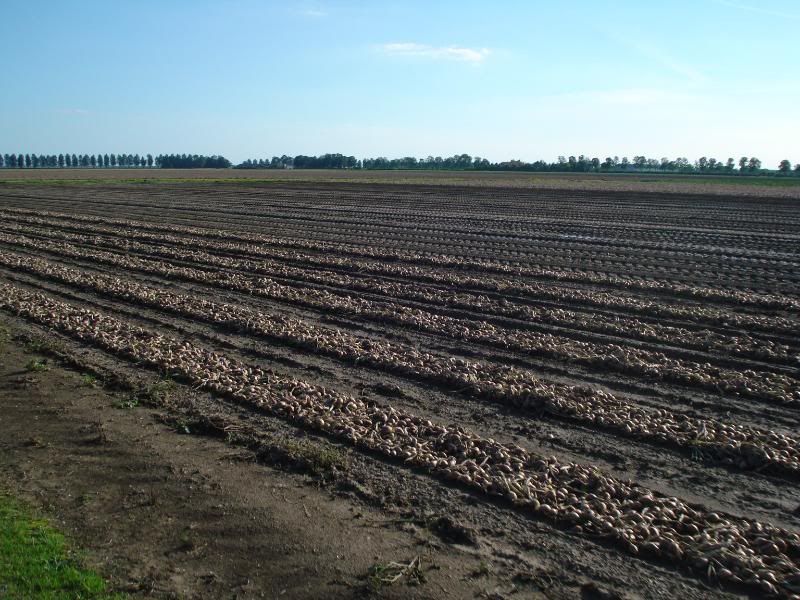 |
| Onion field |
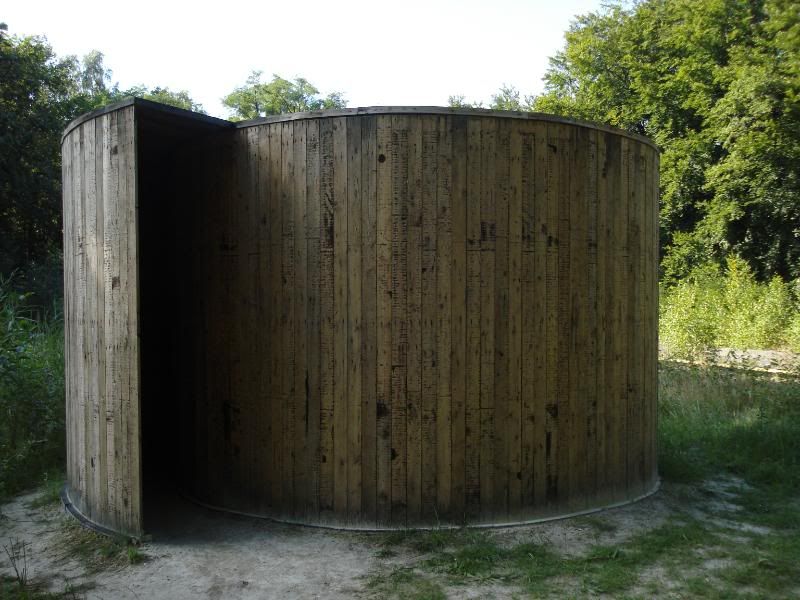 |
| This had pieces cut out inside such that you could see reflections of the sky. The rest of it was pitch black. |
On
our way back, we rode past a lighthouse that used to overlook the ocean
before the polder was reclaimed, but now is just a lighthouse in the
middle of a field.
In our last week, another WWOOFer came from Amsterdam named
Daniel. He had worked with Henrike before and had some time off from
work, so he came to volunteer for a few days. It speaks well of Henrike
and Digni that someone would want to return on their few precious days
off.
It was nice to have another WWOOFer around. Aram, Daniel and I biked to Emmelord, which is about an hour's ride away, to visit Henrike at the farm-stand she runs there.
She
bought
us all ice cream and afterwards the three of us rode to Nettle Beach to
take a swim. Daniel is intelligent and soft-spoken; he was good company.
We also cooked a lot, making use of the beautiful beets and potatoes
available to us.
We
also took a field trip with Digni to Groningen for an afternoon. The
north of the Netherlands tends to be less developed and urban than the
south. As a result, the government invested heavily in Groningen's
cultural sector. The city boasts a major university and shiny, new
contemporary art museum. We only got a quick impression while Digni was
doing business; the architecture was remarkably beautiful.
 |
| Automat machine for various fried foodstuffs. |
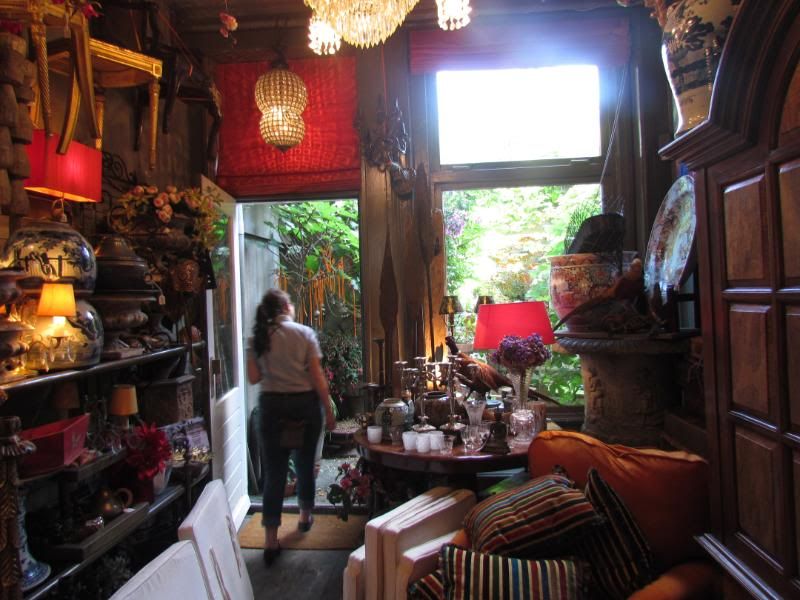 |
| Awesome antique store. |
On
Sunday, after Daniel left, Aram and I made a bike trip through the
polder. We visited Schokland, a former island which became part of the
land when the Zuider Zee was drained and the polder "reclaimed."
Schokland has a museum, and numerous ruins. It's a UNESCO World
Heritage site, although, really, there's not much left to see.
Schokland was never much of an island; its residents fought a losing
battle to keep above sea level, as the ocean pushed inward. Eventually,
the only inhabitable areas were three small hills, connected by narrow
wooden walkways. The rest of the island was useless marsh. It was
abandoned in the 19th century. After the Noordoostpolder was drained,
in 1942, many of the buildings were demolished, although I'm not sure
why. It's especially puzzling considering that at the time the
Netherlands were occupied by the Nazis, and with the strong Nazi
interest in history it's a mystery why they would destroy most of the
historical buildings in Schokland. In any case, the small museum
displays archaeological pieces, from prehistory through the island's
abandonment.
After
seeing Schokland, we biked
to the Nordoostpolder's other former island, Urk, which is situated on
the outside of the polder, such that it still presents one side to the
open water. Urk is supposedly much more conservative and Christian than
the rest of the area. It was Sunday when we arrived, and nothing -
absolutely nothing - was open. We ended up at the memorial to fishermen
lost at sea, which was depressing, and then left. We noticed that a
lot of the men were wearing identical gold rings through both ears. The
internet provided us with their meaning-- they are apparently worn to
identify fishermen as coming from Urk.
The last few days at the farm we
continued our work preparing garlic for the market and harvesting
beetroot, among other things. I unfortunately caught a cold or something
and felt pretty sick with a small fever on our second-to-last day, so I
just took it easy. Henrike ordered me to rest and then spent the day
occasionally checking in on me and bringing me various sweet things
which she insisted were my "medicine": warm cherries cooked with sugar
and cream, homemade strawberry ice cream.
Our
time at the farm was drawing to a close and neither Aram nor I wanted to
leave. We had an incredible time getting to know Henrike and Digni. I
especially enjoyed seeing Digni open up a bit- he was very gruff when we
first arrived, but by our last day he was joking with us that he would
hide all our things and sell his car so he couldn't drive us to the train station.
Obviously.
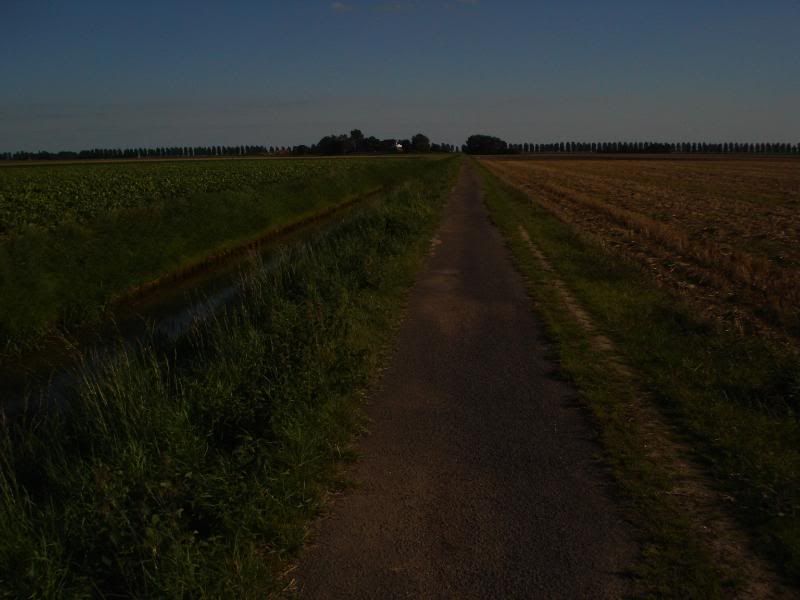
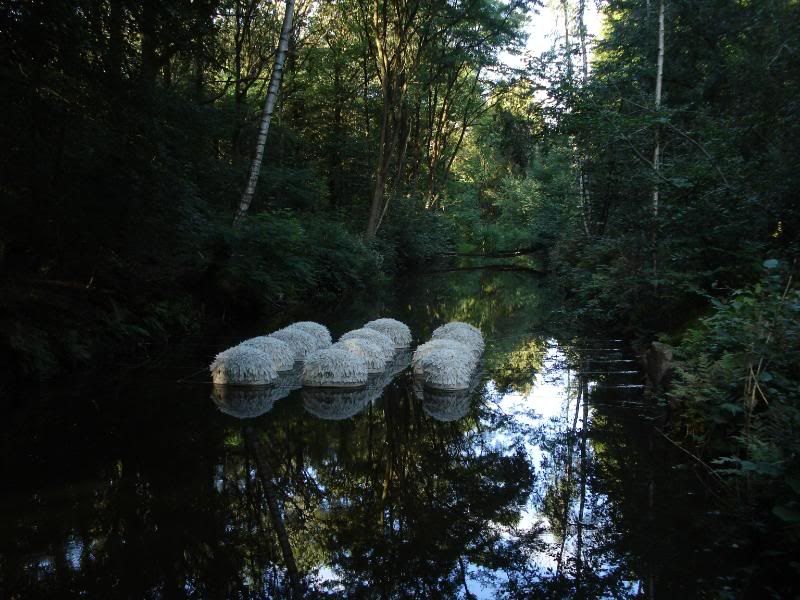
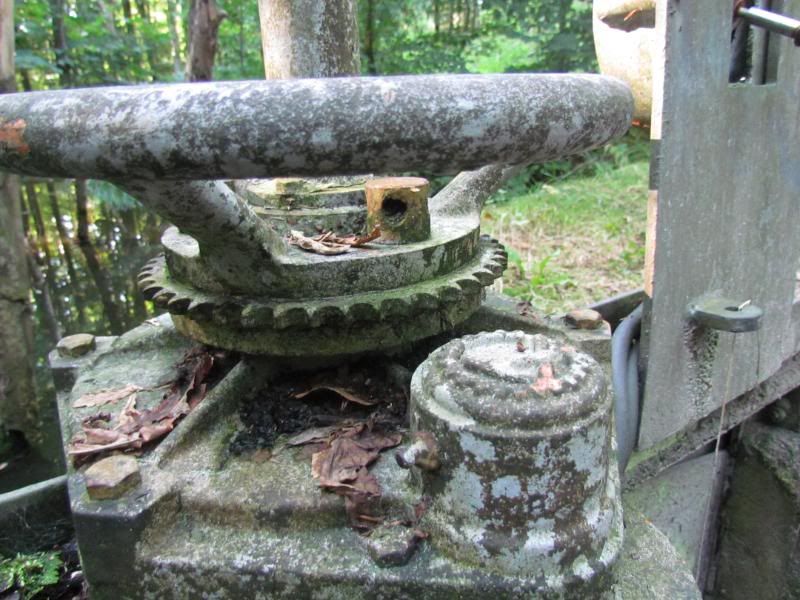
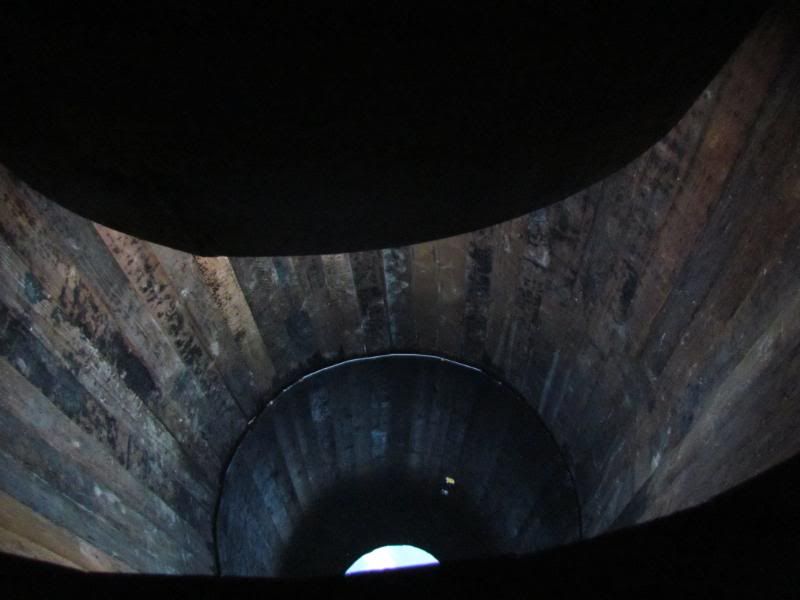
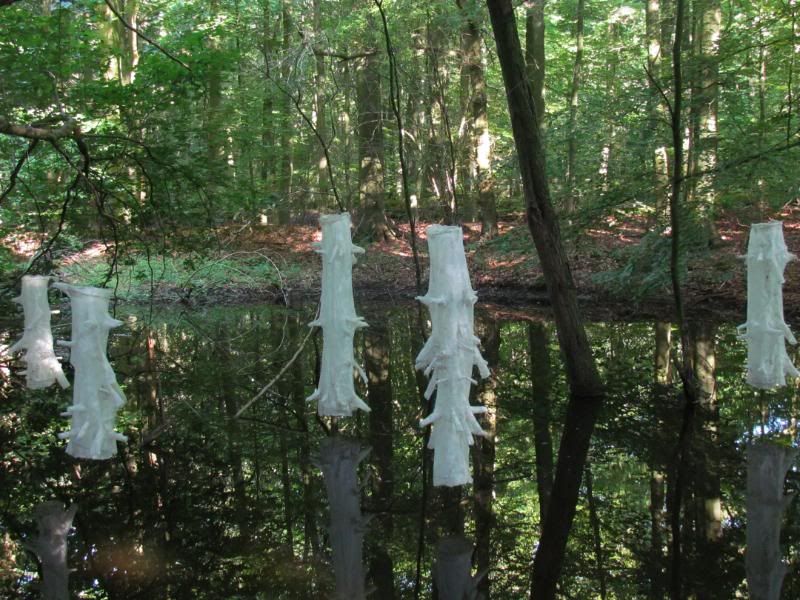

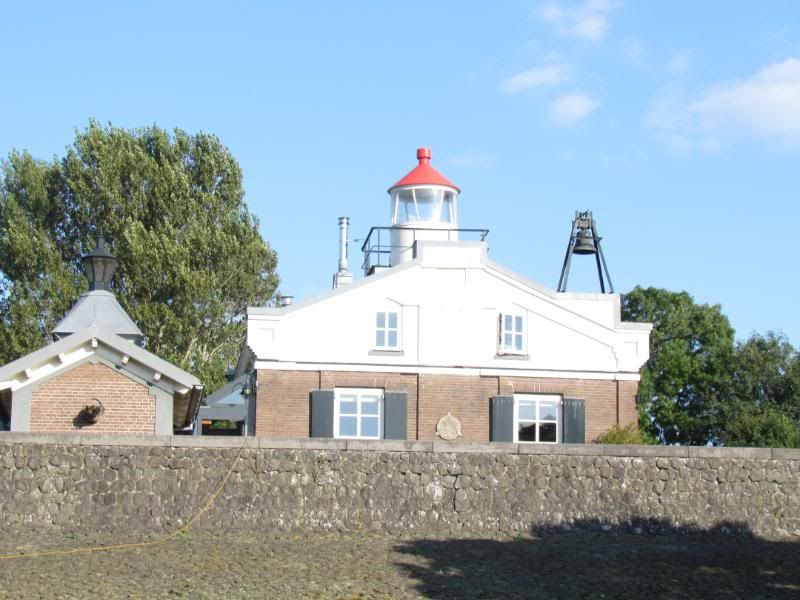
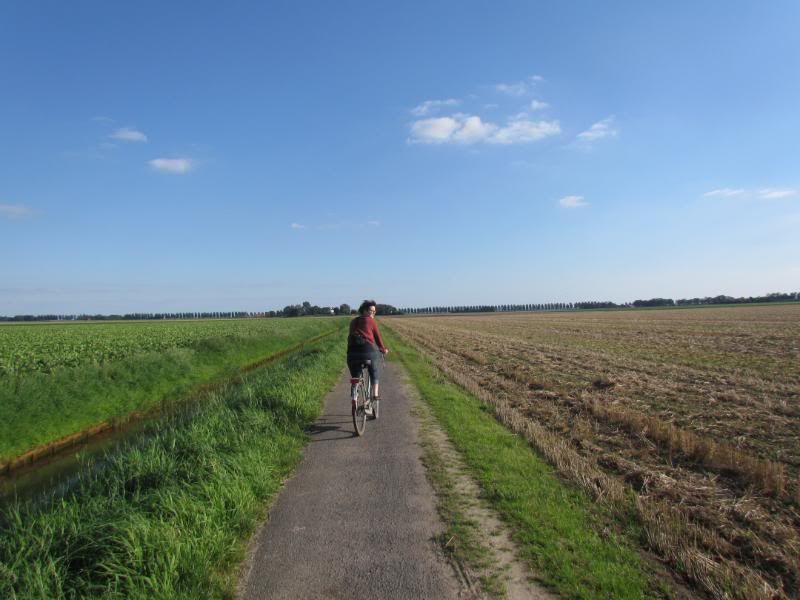
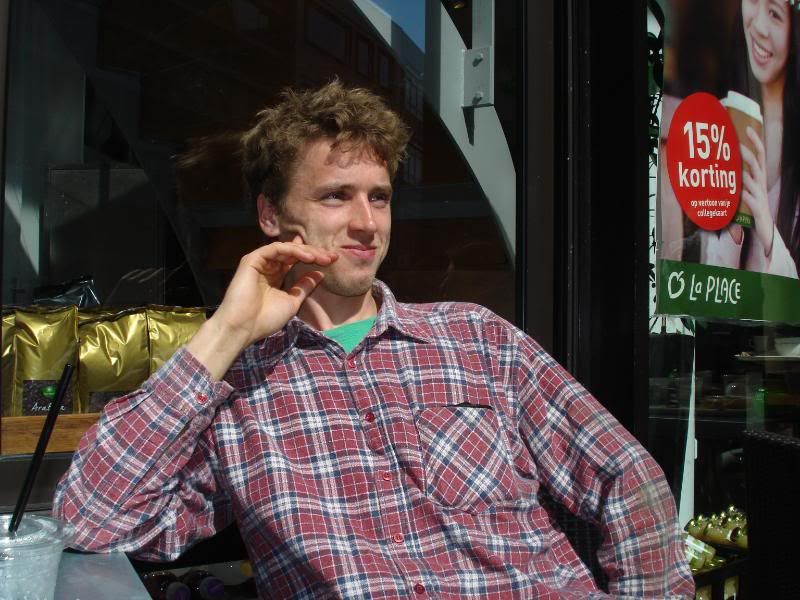
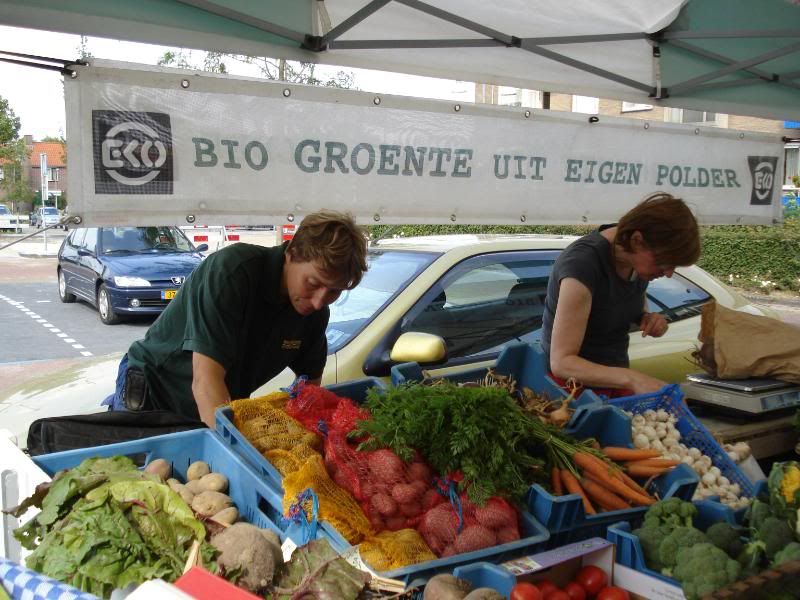




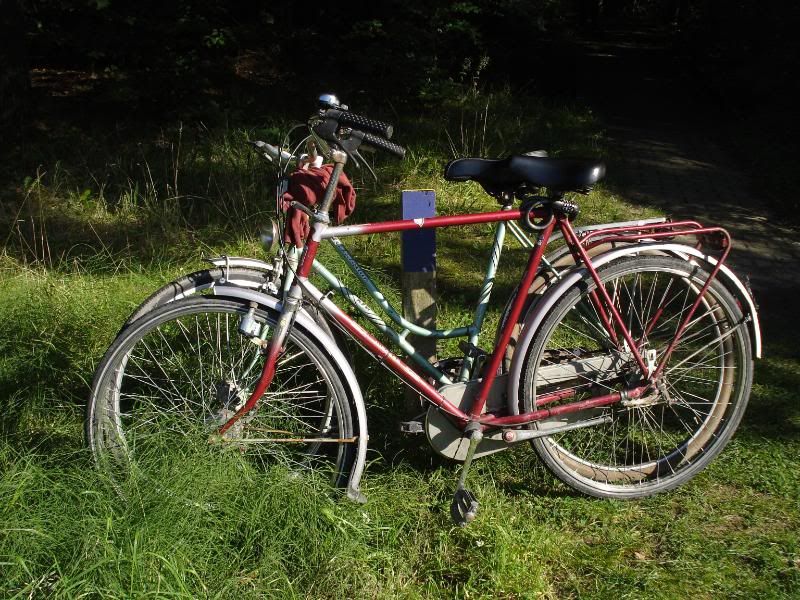
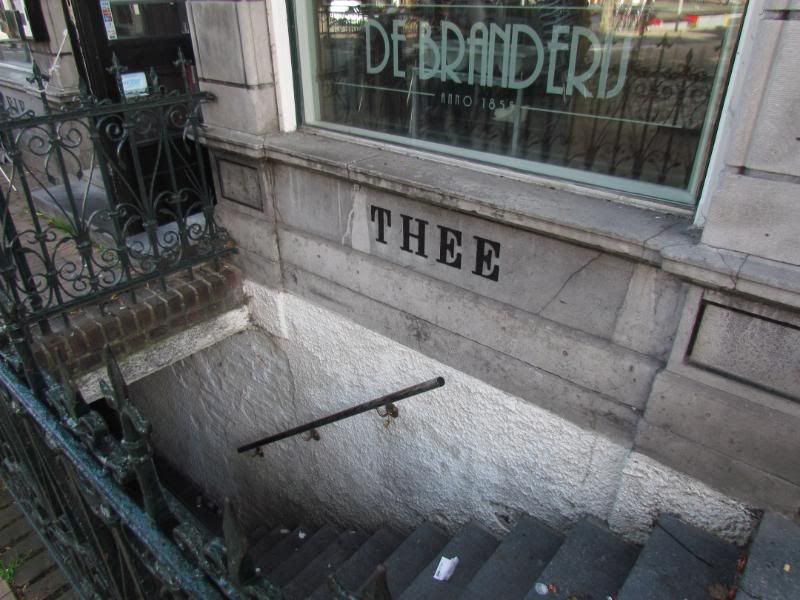


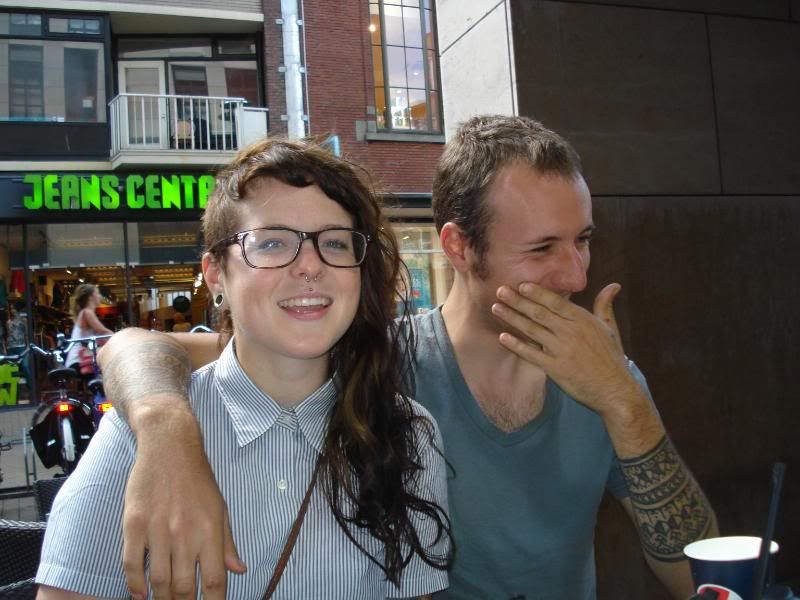
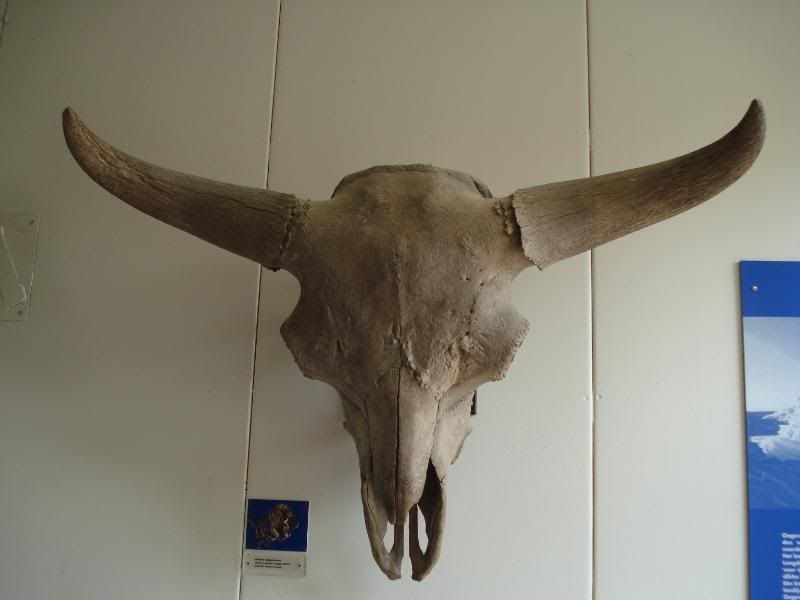
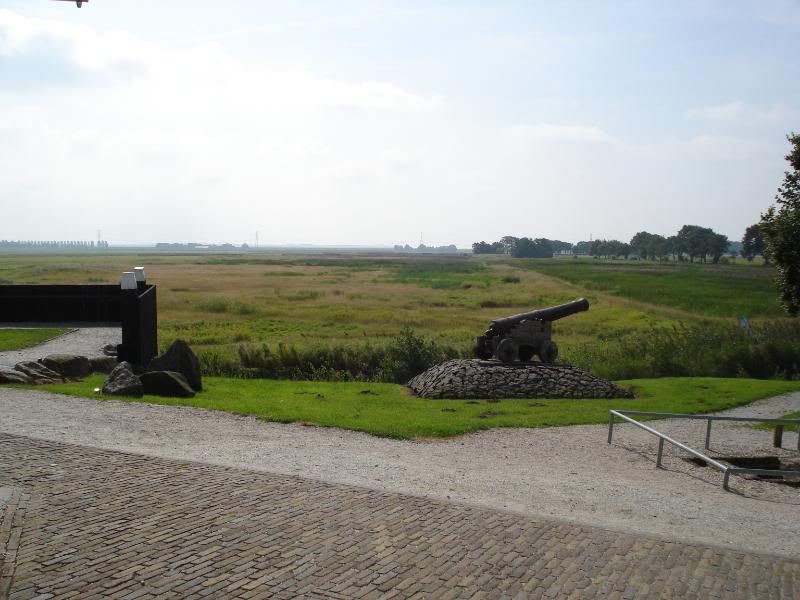
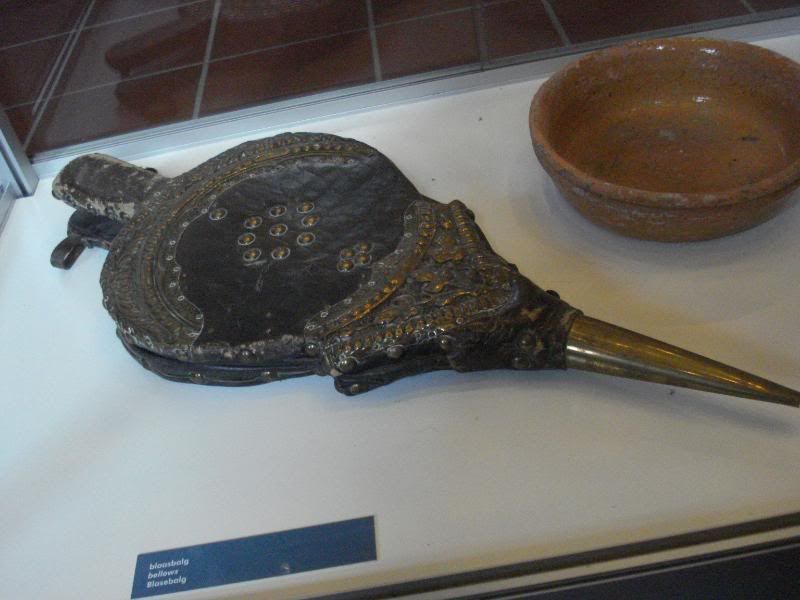
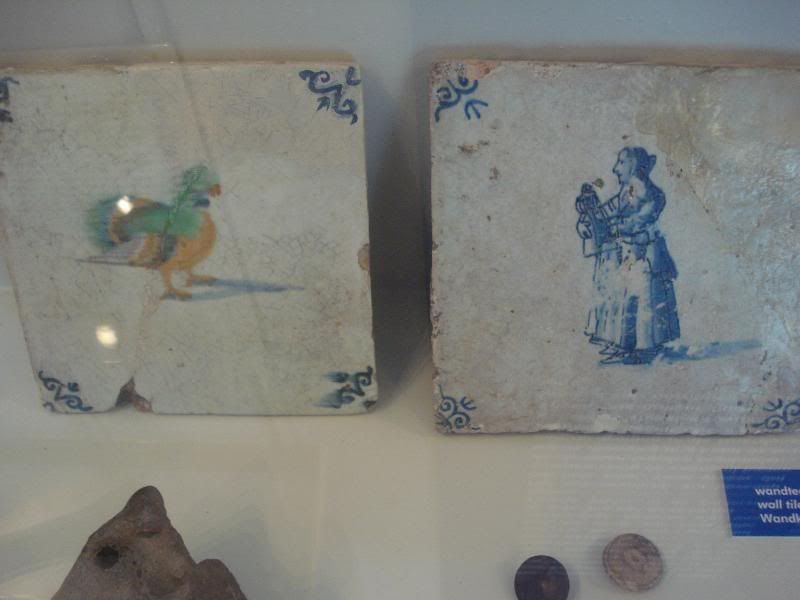
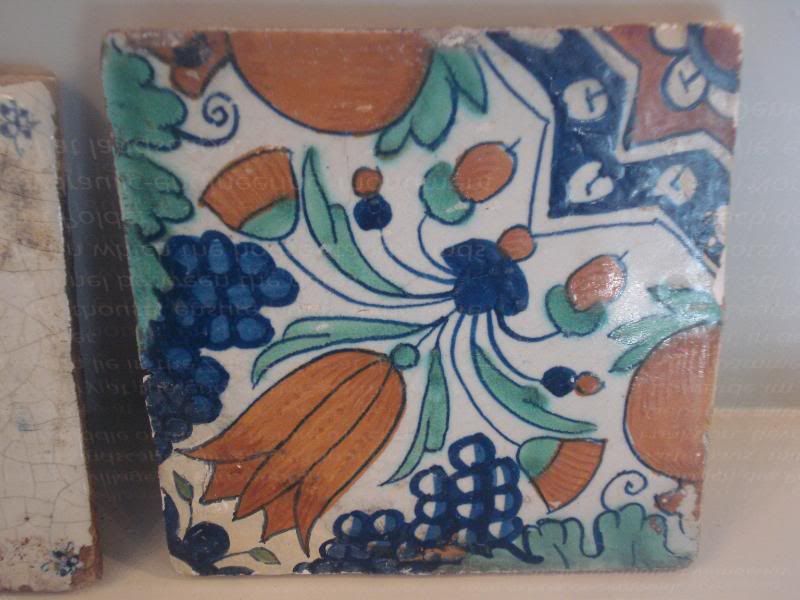
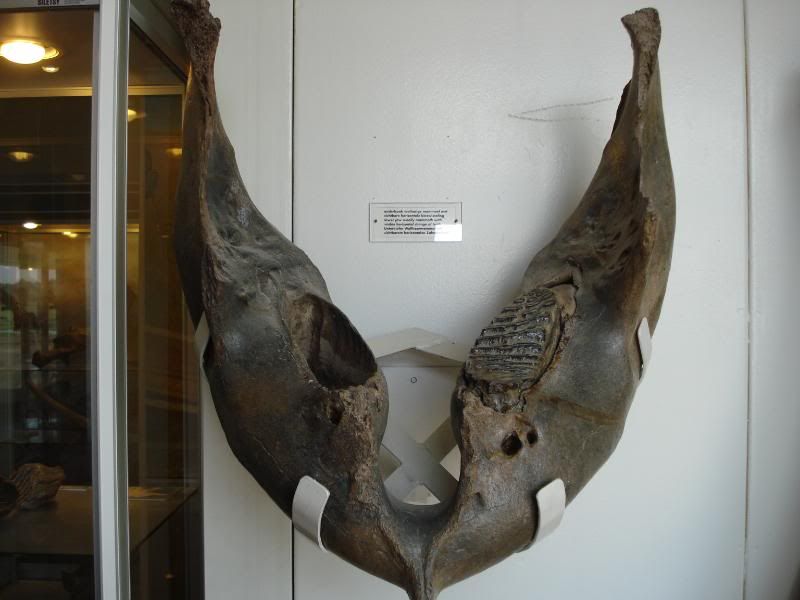
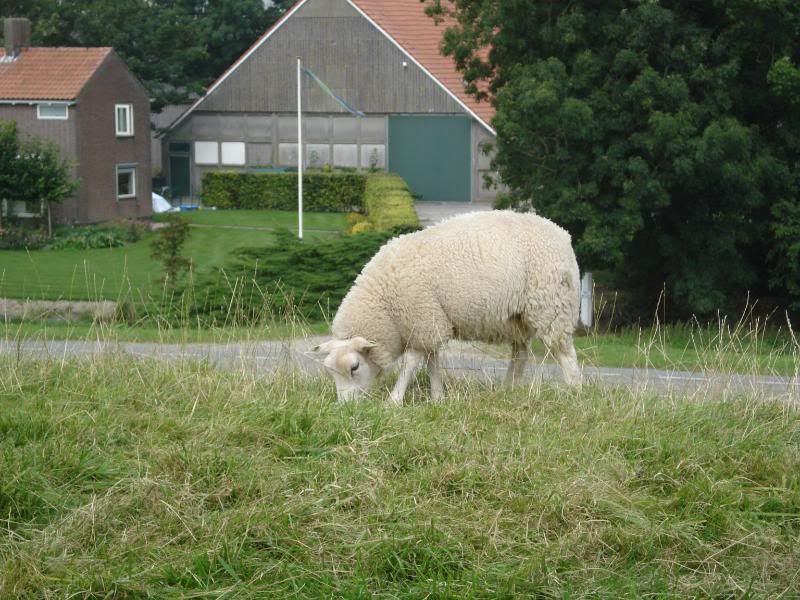
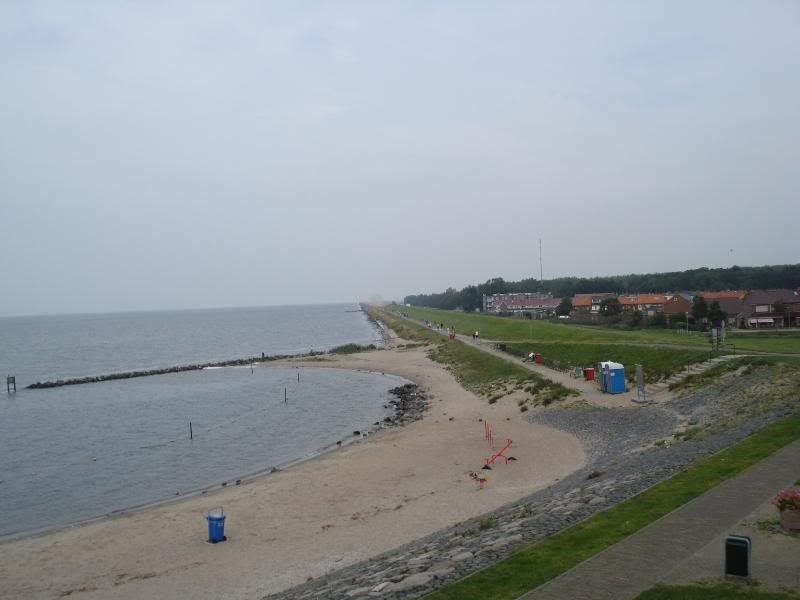
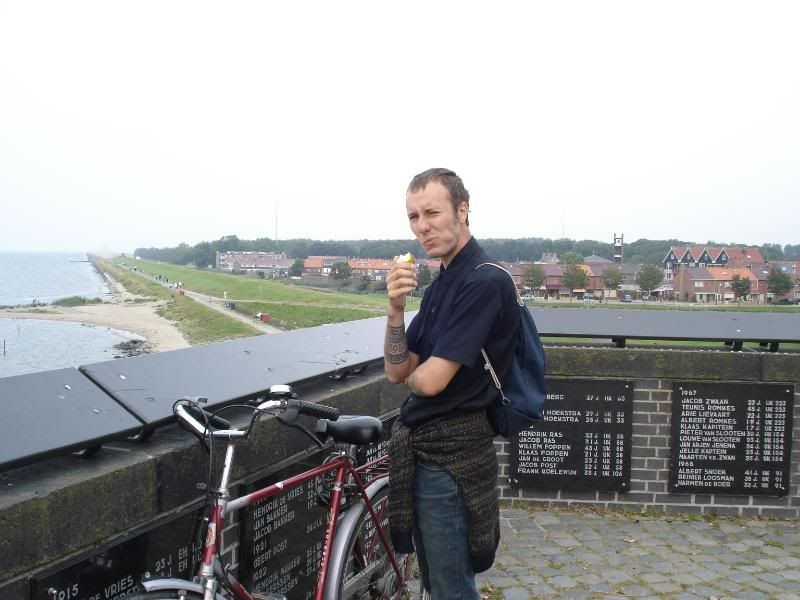
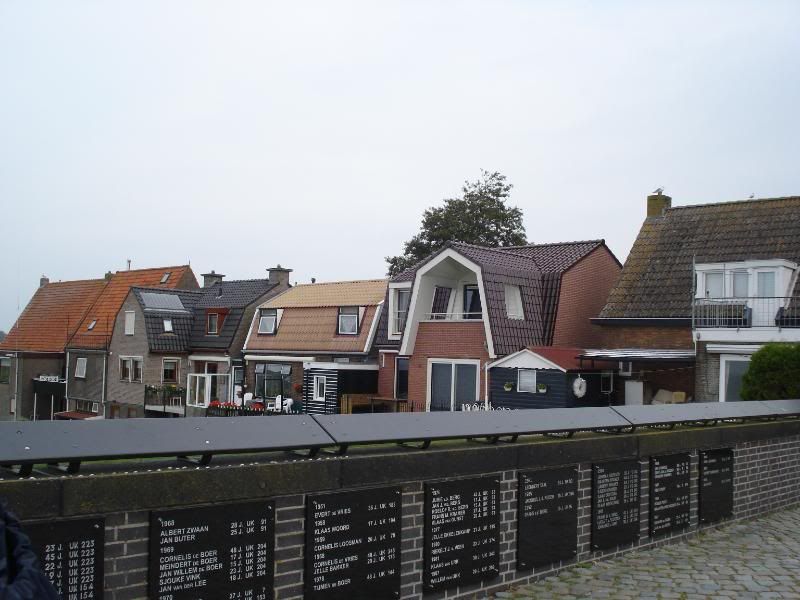





Leave a Reply